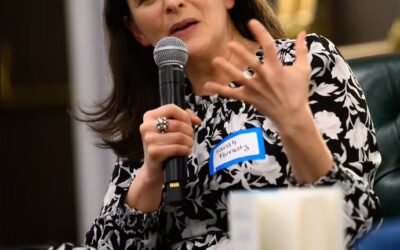In Senator Ben Sasse’s recent book, The Vanishing American Adult, he argues that America is experiencing “a coming of age crisis.” He observes that kids are growing older without maturing; that, like Peter Pan, their minds remain childlike as they grow into men and women. Sasse doesn’t go so far as to fault the American schoolhouse, for he has no desire to make a political statement. However, I can’t help but wonder if teachers like myself are contributing to the rearing of Peter Pans. Perhaps we can’t help but turn our kids to perpetual adolescence because of the way school functions. Our schools are failing, not because they lack resources, but because we have rejected the essence of education––we’ve rejected the challenge of interesting students in the most fundamental questions of life.
America is enjoying one of the most prosperous periods in human history. Our great grandfathers could not have fathomed the mobility and efficiency our workforce is enjoying due to innovation in technology. A great majority of Americans are now working from virtual offices and performing their work tasks according to their own schedules. Many companies are now holding virtual meetings, reducing their overhead costs while allowing workers the comfort of connecting with others without having to leave their own homes.
This sounds like it spells productivity and efficiency; however, the fruits of our innovation are startling. Our students are using these gifts not to become more productive but more consumptive. According to a 2015 Common Sense Media study, Americans ages 13 to 18 consume an average of nine hours of media daily. Considering most of these teens sleep at some point, this consumption averages out to about one-third of their waking lives. Another shocking number is the release of Call of Duty: Black Ops in 2010: just one month after its release the game had been played a cumulative 68,000 years! Meanwhile, our political propositions do not confront our cultural problems. Students are clamouring for free college education, yet a recent study shows that in 2014 over half a million students enrolled in college were unprepared for the more advanced coursework. So why aren’t our kids capitalizing on the gifts that innovation provides? The simple answer is because they don’t want to, but the harder question is why they don’t want to.
In the marketplace, companies that don’t satisfy customer needs don’t survive. Unfortunately, this principle does not apply to the school system. As the workforce is becoming more efficient, the classroom is becoming less efficient. A 2016 survey by the Center for Education Policy shows that 81 percent of teachers believe that their students spend too much time taking tests. The same study shows that throughout the school year, students spend 10 days taking district-mandated tests and nine days taking state-mandated tests on average. In addition to the nineteen days spent taking standardized tests, 36 percent of teachers report spending at least a month on test prep for state-mandated exams. Given the short duration of the school year, this leaves teachers little time to tailor the school experience to the wants and needs of the individual students. What is lost is what is most important: cultivating a love of learning.
Students are not treated with the dignity of individuals. The result: the consumers––the students––are the ones who suffer the consequences. They’re unhappy as the school day lacks either true substantive challenge or the one-on-one attention students need to flourish. Some students are bored with school while others are frustrated. To the child, this either manifests into a looming feeling that time is being wasted, or in a feeling of helplessness and loneliness. Due to arbitrary districting laws as well as regulations making the establishment of independent schools difficult, school choice is severely limited and parents are forced to settle for mediocrity.
Mark Twain once remarked “I never let my schooling interfere with my education.” In a time of innovation and expanding freedom, the first thing we must teach our kids is that that education is a perpetual endeavor to understand themselves, and what is necessary to make them happy. Only then will education perform its true function, rearing students to attain the confidence to become self-reliant and serious. Sadly, as schools are pressured to meet national benchmarks, students learn to become cogs in a wheel.
We must recognize that the end of school is education, not vice versa. It is time that we begin to put the needs of our kids at the forefront of education. We can begin by thinking of innovative solutions to our education problem that are not one-size-fits-all. We can then understand the urgency of educational reform and turn the several solutions to education into a national conversation. We must loosen state regulations that prohibit educational solutions from playing out. If we do so, we will empower teachers and free them to teach so that they can excite students into exploring the goodness, the truth, and the beauty that is to be found in the world and within themselves.














